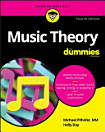Writings on Music, 1965-2000
2002 ഏപ്രി · Oxford University Press
5.0star
2 അവലോകനങ്ങൾreport
ഇ-ബുക്ക്
272
പേജുകൾ
family_home
യോഗ്യതയുണ്ട്
info
reportറേറ്റിംഗുകളും റിവ്യൂകളും പരിശോധിച്ചുറപ്പിച്ചതല്ല കൂടുതലറിയുക
ഈ ഇ-ബുക്കിനെക്കുറിച്ച്
In the mid-1960s, Steve Reich radically renewed the musical landscape with a back-to-basics sound that came to be called Minimalism. These early works, characterized by a relentless pulse and static harmony, focused single-mindedly on the process of gradual rhythmic change. Throughout his career, Reich has continued to reinvigorate the music world, drawing from a wide array of classical, popular, sacred, and non-western idioms. His works reflect the steady evolution of an original musical mind. Writings on Music documents the creative journey of this thoughtful, groundbreaking composer. These 64 short pieces include Reich's 1968 essay "Music as a Gradual Process," widely considered one of the most influential pieces of music theory in the second half of the 20th century. Subsequent essays, articles, and interviews treat Reich's early work with tape and phase shifting, showing its development into more recent work with speech melody and instrumental music. Other essays recount his exposure to non-western music -- African drumming, Balinese gamelan, Hebrew cantillation -- and the influence of these musics as structures and not as sounds. The writings include Reich's reactions to and appreciations of the works of his contemporaries (John Cage, Luciano Berio, Morton Feldman, Gyorgy Ligeti) and older influences (Kurt Weill, Schoenberg). Each major work of the composer's career is also explored through notes written for performances and recordings. Paul Hillier, himself a respected figure in the early music and new music worlds, has revisited these texts, working with the author to clarify their central narrative: the aesthetic and intellectual development of an influential composer. For long-time listeners and young musicians recently introduced to his work, this book provides an opportunity to get to know Reich's music in greater depth and perspective.
റേറ്റിംഗുകളും റിവ്യൂകളും
5.0
2 റിവ്യൂകൾ
രചയിതാവിനെ കുറിച്ച്
Steve Reich was recently called "America's greatest living composer by The Village Voice. His most recent work is the digital video/music theater Three Tales (2002) done in collaboration with Beryl Korot. Paul Hiller is a singer, conductor, and writer on music. He performs ith his own early music Theatre of Voices, and with many other ensembles. He recently won the 2009 Pulitzer Prize for Music, for his composition Double Sextet.
ഈ ഇ-ബുക്ക് റേറ്റ് ചെയ്യുക
നിങ്ങളുടെ അഭിപ്രായം ഞങ്ങളെ അറിയിക്കുക.
വായനാ വിവരങ്ങൾ
സ്മാർട്ട്ഫോണുകളും ടാബ്ലെറ്റുകളും
Android, iPad/iPhone എന്നിവയ്ക്കായി Google Play ബുക്സ് ആപ്പ് ഇൻസ്റ്റാൾ ചെയ്യുക. ഇത് നിങ്ങളുടെ അക്കൗണ്ടുമായി സ്വയമേവ സമന്വയിപ്പിക്കപ്പെടുകയും, എവിടെ ആയിരുന്നാലും ഓൺലൈനിൽ അല്ലെങ്കിൽ ഓഫ്ലൈനിൽ വായിക്കാൻ നിങ്ങളെ അനുവദിക്കുകയും ചെയ്യുന്നു.
ലാപ്ടോപ്പുകളും കമ്പ്യൂട്ടറുകളും
Google Play-യിൽ നിന്ന് വാങ്ങിയിട്ടുള്ള ഓഡിയോ ബുക്കുകൾ കമ്പ്യൂട്ടറിന്റെ വെബ് ബ്രൗസർ ഉപയോഗിച്ചുകൊണ്ട് വായിക്കാവുന്നതാണ്.
ഇ-റീഡറുകളും മറ്റ് ഉപകരണങ്ങളും
Kobo ഇ-റീഡറുകൾ പോലുള്ള ഇ-ഇങ്ക് ഉപകരണങ്ങളിൽ വായിക്കാൻ ഒരു ഫയൽ ഡൗൺലോഡ് ചെയ്ത് അത് നിങ്ങളുടെ ഉപകരണത്തിലേക്ക് കൈമാറേണ്ടതുണ്ട്. പിന്തുണയുള്ള ഇ-റീഡറുകളിലേക്ക് ഫയലുകൾ കൈമാറാൻ, സഹായ കേന്ദ്രത്തിലുള്ള വിശദമായ നിർദ്ദേശങ്ങൾ ഫോളോ ചെയ്യുക.





